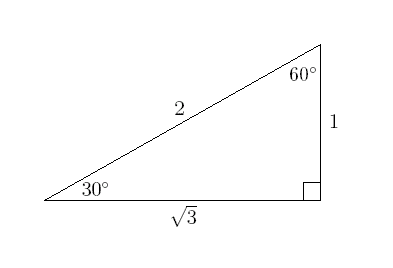- Joined
- May 25, 2007
- Messages
- 4,124
- Reaction score
- 965
- Points
- 5,606
Reposting the thread
Hey Guys,
I was wondering what ARITHMETIC tricks you could implement int he MCAT...im just confused because there are a lot (ignoring the ones in EK), but I need to know if you have a list compiled after extensive practice that you would recommend knowing.
Rounding, no seriously rounding really helps.
I seriously went to the library and checked out a 5th grade text book. It has lots of stuff on unit conversions, rounding, fractions, and exponentials. I felt stupid doing problems out of it...but it helps you to do them fast and gives you practice. I hate how I've was so dependent on calculators! I couldn't even add fractions without the calculator until I looked at the text book. Just practice problems because you don't want to spend a lot of time on them on the test or to make stupid math errors. Good luck!
I so 100% agree with your comment. It's funny you mention fifth grade, because in class we discuss the highly advanced method of having no shame and doing it like a fifth grader.
Key things that I have found hurt people are:
Powers of ten: This is helped by decimal hopping and labeling numbers with "increased by factor of 10" or "decreased by factor of 100". It comes down to paying attention really.
Ratios: These are made easiest by making denominators easy to deal with. Also, if a ratio is hard to calculate as written, flip it and see if it is easier the other way. We somehow emotionally deal with bigger-over-smaller ratios better than smaller-over-bigger ratios.
Fractions and Equivalent Decimal-based Value: Learn the correlation between fractions and decimals 1/4 = .25, 1/5 = .2, etc... These can prove EXTREMELY useful on the exam.
There are many more strategies and techniques, but these are generally the big three for most people. A little practice goes a long, long way.
The funny thing I've found is that the supposedly more difficult math skills like logs, square roots of complex numbers, and exponential decay/growth are typically easier for people than basic division, fractions, and multiplication.
Learn how to estimate log calculations:
-log (1E-5) = pH 5
-log (1E-4) = pH 4
And -log(3E-5) =~ pH 4.5
If you remember that a '3' in front of the 10^-X, corresponds to the halfway point between two pH values then you can estimate whether all H+ (or OH-) concentration values will give a pH between X and X.5, X.5 or X+1, etc...
What textbook or SAT-like book could I use that would get these fundamentals into becoming a second language. I love ur advice Vihsdas, and its little bitty tricks like those I was wondering if you had a list of after taking the MCAT, I am pretty sure u may have had like 20-30 tricks in ur bag to tackle physics problems...other than that I really need book titles to do in a couple of days.
thanks
Wow, what a great little tidbit! Thanks much for this stuff!
"My log has a magic number. It's three."
A silly way to put it, but instantly memorable.
One of my favorite tricks is Left Add Right Subtract. This refers to exponents, for example, if you move the decimal point to the left one, you need to add one to the exponent. If you move the decimal point to the right one, you need to subtract one from the exponent.
1 x 10^5, move left one decimal point to the left and you got .1 x 10^6
I hope this helps.


